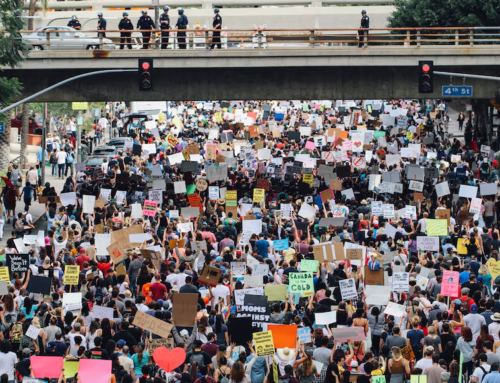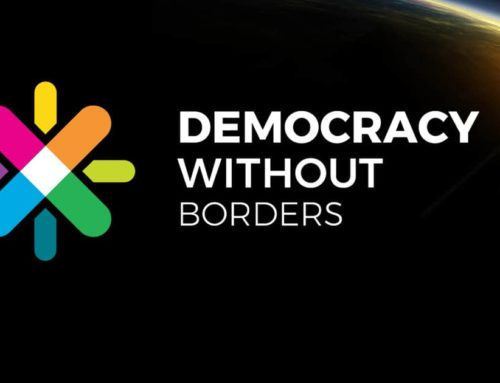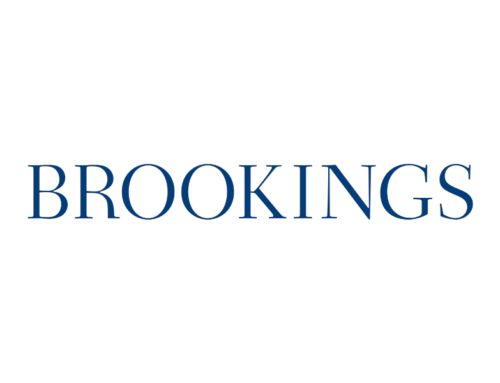By Claire Schouten, Senior Program Officer, International Budget Partnership and Joe Powell, Deputy Chief Executive Officer, Open Government Partnership

Restoring the notion of government of, for and by the people will be essential as we seek to renew societies and build resilience in the post-pandemic global recovery. This crisis exacerbated and exposed inequality and injustice around the world, hitting the most vulnerable hardest. Now is the time for governments to make more robust investments in rebuilding societies.
These investments are too important to be made opaquely and without public input, especially when inequality and perceived corruption have already undermined public trust in many governments. In recent years, governments globally have made commitments to be open about what they’re doing with the public’s money.
Fiscal openness is a mainstay of the open government movement. In the last decade of the Open Government Partnership (OGP), over 90 percent of OGP members have made a total of 671 fiscal openness commitments – more than nearly any other policy area. Fiscal openness is not just a consistently popular policy area in OGP, it’s also one of the four core eligibility criteria for membership, based on data from the Open Budget Survey. Redoubling those commitments, and most essentially, making sure they translate into accountability – so that communities have a say in public spending and can ensure governments use scarce resources for the public good– has never been more important to our democratic future.
The good news is that these efforts are paying off. As per the Open Budget Survey, we’re at the highest level of transparency since the International Budget Partnership started assessing open budget practices more than fifteen years ago. In the 77 countries assessed in every round between 2008 and 2019, the average global score on budget transparency increased by 20 percent. The latest OGP Vital Signs research also shows that OGP countries that have made open budgeting commitments – especially if they are ambitious and over multiple action plans – have improved their scores more than other countries.
However, progress has also been inconsistent with fluctuating performance in too many countries. Among OGP members, there are now some countries that even risk falling below the core eligibility criteria because they have slipped on their fiscal transparency scores. COVID exacerbated this volatility as many governments have not been as transparent with relief spending as they could be. Despite all of this, there is room for quicker, more sustained progress. If countries around the world simply published budget documents that they already produce for internal use, there would be transparency gains globally of 20 percent. Governments can also focus on proactively providing information that citizens want, such as information on service delivery.
Going beyond transparency
There is also growing recognition that transparency alone is insufficient, that opportunities for public participation and strong oversight are also central to accountable government. Spaces are needed for informed public debate and for those most likely to be adversely affected by inequitable budgets to be involved. Strong oversight by both legislatures, national audit offices and other oversight actors is needed to hold the executive to account throughout the budget process and ensure budgets are fully implemented in line with stated objectives.
As governments launched massive spending measures to address the impacts of the pandemic, some countries have shown that a more transparent, inclusive and accountable way of managing the public purse, even during an emergency, is indeed possible.
In the Philippines, a commitment to hold a series of public consultations called Dagyaw 2020—promoted under the aegis of the Open Government Partnership—was repurposed to ensure continuing public dialogues during the COVID crisis on government response policies.
In South Africa, the civil society-led Asivikelane campaign has highlighted severe public service shortages in South Africa’s informal settlements. Using a simple but effective survey that is implemented via text messages and targeted advocacy, the campaign has already improved access to water, sanitation, and waste removal services from municipal governments affecting more than one million people.

In Sierra Leone, the Audit Service used real-time auditing approaches honed during the Ebola crisis to publish a report on COVID-19 spending that led to the Anti-Corruption Commission taking up a number of investigations and detaining top government officials.
These good practices demonstrate that speedy policy responses do not have to undermine accountability. They provide a useful roadmap for governments to include citizens and critical oversight institutions in deeply consequential spending decisions in emergency times and beyond. By planning and implementing spending in a more open and collaborative way, and keeping citizens informed, governments can ensure public spending is more effective and equitable. Perhaps most importantly, they can strengthen social capital and expand civic space so that all people feel heard and trust that public funds are spent in the public interest. Governments should take heed of these approaches in their ongoing relief efforts. For instance, the EU’s landmark Recovery and Resilience Facility – an essential mechanism to combat the challenges faced by EU member states as they rebuild economies and livelihoods in the wake of the pandemic – should model these good practices. Given the unprecedented size and scale of the funds, it will be crucial to embed enhanced transparency, accountability and civic participation mechanisms to ensure these funds have their intended impact.
We have an opportunity to forge new alliances and strategies that shift politics. It’s an all-hands-on-deck approach to countering authoritarianism and promoting local accountability solutions. It consists of:
Refined political strategy. For public resources to contribute to a more just and equitable society, we need a deeper understanding and response to the political economy of public resource decision-making and implementation. Powerful interests that have built social, political, and economic structures that concentrate wealth and privilege and exclude marginalized groups are at the root causes of deprivation. Further opening up budget processes in meaningful ways requires developing alliances and partnerships that build countervailing power, so that public resources are spent to tackle poverty and inequity. Progress on open spending practices will also generate important information for combating corruption in public contracts and company ownership.
New spaces for impact. New spaces are emerging as opportunities for impact on big political issues of our time. They include meaningful civil society participation in revenue debates and spending monitoring; bridging budget and environmental actors to ensure that recovery funds contribute to a sustainable and green transition and that climate change funds serve vulnerable communities; and strong connections and real gains at the subnational level of government, with a focus on service delivery. Civil society has been a vanguard in carving out new spaces to inform government decisions in a meaningful way– now it is time for national and local governments to scale up and formalize channels for greater public participation on these mission critical issues.
New opportunities for powerful alliances. We can build a robust accountability ecosystem that fosters trust and strengthens democracy. Let’s bring together citizens, social movements, state accountability institutions such as national audit offices and executive ministries to foster a governance system that works for all.
As the Open Budget Survey and good practices above illustrate, it is notable that countries across income levels and geographies have been able to chart new directions to manage public funds in a more accountable and inclusive way. Where there is a will, there is a way. A more inclusive approach is not only possible, but desirable if we are to advance more resilient and democratic societies in which public funds advance the public interest. The Open Government Partnership can help by enlisting new allies, building broad coalitions across government and civic actors with legitimacy and power to rise to the challenges we face and are likely to face going forward.
This article also appears on the Open Government Partnership’s website. Read it here.





Leave A Comment